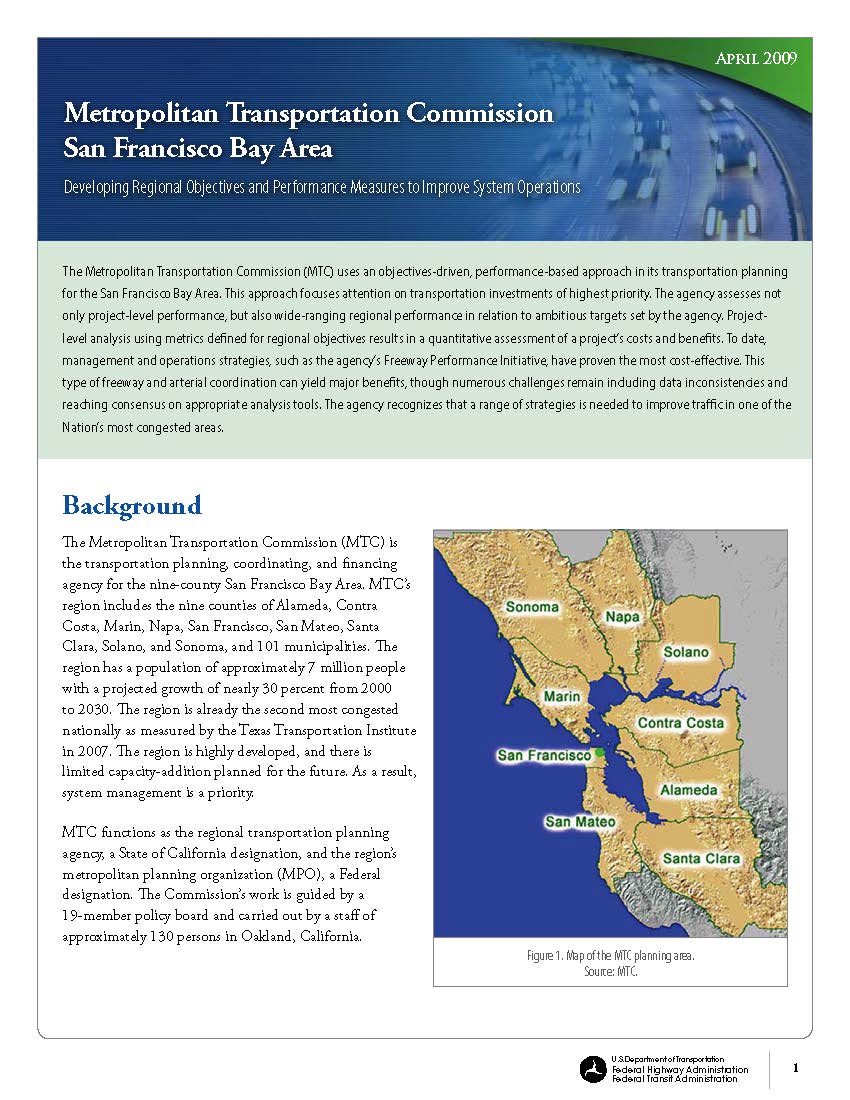Overview
 A strategic approach to planning for operations that is guided by specific objectives and regular performance measurement will help ensure that the most effective operations strategies are incorporated into transportation plans. In many regions around the country, agencies are already applying elements of this approach in a variety of ways. This case study is just one example of where this is being done.
A strategic approach to planning for operations that is guided by specific objectives and regular performance measurement will help ensure that the most effective operations strategies are incorporated into transportation plans. In many regions around the country, agencies are already applying elements of this approach in a variety of ways. This case study is just one example of where this is being done.
The Metropolitan Transportation Commission (MTC) uses an objectives-driven, performance-based approach in its transportation planning for the San Francisco Bay Area. This approach focuses attention on transportation investments of highest priority. The agency assesses not only project-level performance, but also wide-ranging regional performance in relation to ambitious targets set by the agency. Project-level analysis using metrics defined for regional objectives results in a quantitative assessment of a project's costs and benefits. To date, management and operations strategies, such as the agency's Freeway Performance Initiative, have proven the most cost-effective. This type of freeway and arterial coordination can yield major benefits, though numerous challenges remain including data inconsistencies and reaching consensus on appropriate analysis tools. The agency recognizes that a range of strategies is needed to improve traffic in one of the Nation's most congested areas.